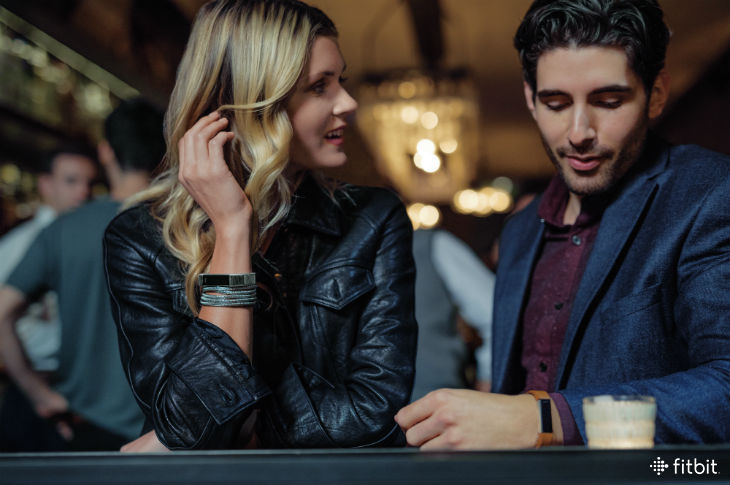
When was the last time you were caught phubbing?
Was it during dinner with friends? A heartfelt exchange with your significant other? Or maybe even in the middle of an important meeting? Chances are, you’ve been guilty of phubbing recently. Maybe you’re even doing it now?
Okay, it may not be a term you’re familiar with, but you definitely know phubbing when you see it. “Phubbing is [snubbing] your partner, friend, or co-worker because you’re preoccupied with your smartphone,” says San Francisco-based psychologist, Juli Fraga, Psy.D. “I see this behavior everywhere. I’m even guilty of it myself from time to time.”
It may sound silly, but according to experts, phubbing is a serious problem that can negatively impact your relationships and your wellbeing. Below, learn how, plus ways to be smarter about smartphone use.
The Very Real Effects of Phubbing
Phubbing occurs in a variety of situations, but some of the latest research looks at its romantic repercussions. According to one recent study titled, “My Life Has Become a Major Distraction From My Cell Phone,” researchers revealed that partner phubbing decreases marital satisfaction, which can subsequently affect a partner’s depression and satisfaction with life overall. That means obsessively scrolling through your newsfeed, liking random acquaintance’s vacation photos, or posing for that perfect selfie could have concrete negative consequences for your partner’s well-being.
“By phubbing too often, we may even develop a case of relationship laziness and impact the way we cope with conflict,” says Fraga. “In lieu of face-to-face or in-person connections and communication, we may depend on our devices as a way to communicate with others, resorting to ‘likes’ and ’emojis’ as a way to express how we feel.”
But, as you probably know, phubbing doesn’t just happen between romantic partners. “I see ‘phubbing’ everywhere I go—and my office and household are no exceptions,” says Shilpi Agarwal, MD, a New York-based family medicine and integrative and holistic medicine physician. “I see people having one-sided conversations while the other person is looking at their phone, or talking but also checking their phone many times.”
And, like partner phubbing, phubbing between friends can hurt both parties. People who even just think about being phubbed during a conversation feel more negatively about the hypothetical interaction than people who don’t conjure up that thought, finds a paper published last month in the Journal of Applied Social Psychology.
Another study found that people deem conversations significantly less satisfying when the person they were talking to phubbed during them, while yet another study revealed that just the presence of a cell phone can negatively affect the perceived closeness and connection of an interaction—even if no one uses it. Some research even links phubbing to adolescent depression and distress.
“Phubbing can convince us that we’re not lonely, even though we’re alone, as well as worsen symptoms of anxiety and depression,” says Fraga. “Phubbing can also become a type of addiction, whereby we prefer our devices over human contact.”
Earlier this year, a study published in the Journal of Applied Social Psychology suggested that the negative effects of phubbing are due to its ability to impact four fundamental human needs: belongingness, self-esteem, meaningful existence, and control.
“We argue that these effects occur because phubbing resembles other forms of ostracism or social exclusion,” said Kent University, Canterbury psychology professor and study author, Karen M. Douglas, PhD. “Being ignored or left out makes people feel bad about themselves and their relationships.”
Free Yourself From Phubbing
Phubbing may seem like an inevitable consequence of life in a tech-driven world, but experts agree that unplugging is possible—it just takes a bit of effort. Here are some simple steps to sidestep phubbing:
1. Schedule no-phone time.
“One of the best ways to disconnect is to do so in small chunks of time,” says Agarwal. “Although my husband and I are still struggling with this, we decided that from 6 to 7 p.m. or so, we will try to put our phones away and be engaged with our kids—play with them, build something together, or go outside.”
Fraga believes physically putting the phone away is one way to avoid technological temptation. “Give your phone a curfew,” she says. “Set a time each night to turn off your device. It’s important to have some ‘screen-free’ time each day.”
2. Focus on the here and now.
Learning to disconnect from the phone may also help you incorporate more mindfulness into your daily life and enhance your ability to stay aware in the present moment. “If you’re expecting an important call or text, put the phone on vibrate,” suggests Fraga. “If you want to take a selfie or group photo, treat your phone like a camera—take the photo, and then put the device away. You can load the picture onto social media later.”
3. Use your (spoken) words.
One tip to mitigate the discomfort of less tech time is to replace those digital interactions with real-life, relationship-building vocal conversations. “Don’t rely on text to sort through conflicts or discuss lengthy topics,” advises Fraga. “If you can’t say it in less than 150 characters, it’s time for an actual conversation with another human.”
In the end, experts say phubbing is an avoidable phenomenon if you simply remember that survival is possible without the constant warm glow of a device.
“I recently forgot my phone and I was freaking out,” says Agarwal. “I wanted to figure out every alternative and then once I got over not having it, about 20 minutes later, I was really excited and liberated to not have it. Try to ‘forget’ your phone one day, and you will also start to see how much you reach for it or use it.”
If the thought of leaving your phone behind gives you major FOMO, rest assured you won’t have to worry about missing out on the things that matter most—like your health! Keep on stepping, sweating, and even shopping with these 10 Fitbit Ionic Features that function phone-free.
This information is for educational purposes only and is not intended as a substitute for medical diagnosis or treatment. You should not use this information to diagnose or treat a health problem or condition. Always check with your doctor before changing your diet, altering your sleep habits, taking supplements, or starting a new fitness routine.

Good nutrition food mean good health
I like this word “Phubbing” . Nowadays I can see Phubber everywhere: school, bus stations, restaurant. Few days ago, I read an article, he call us is the general just keep head down. It make me feel shame because it is true.
Thanks for your sharing about phubbing and your useful advise.
the unplug I would do is find a desired island with me and some of the favorite men from history to ask some question
the most fun would be finding out who the men would be and would they come to the island?